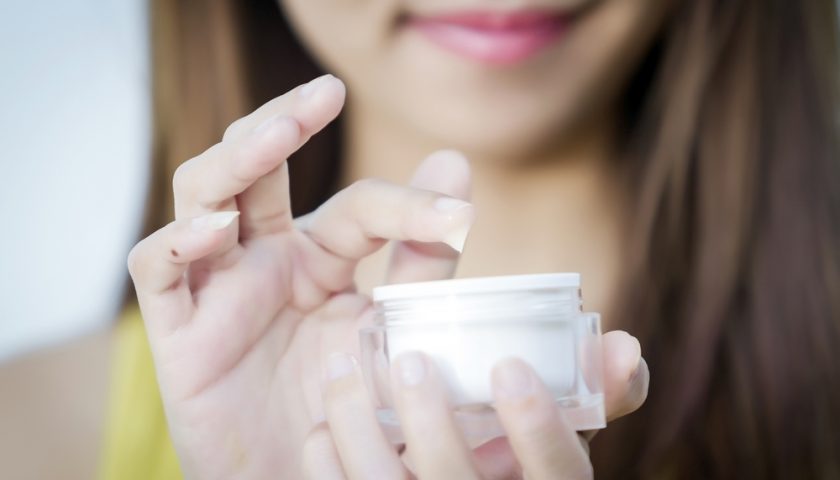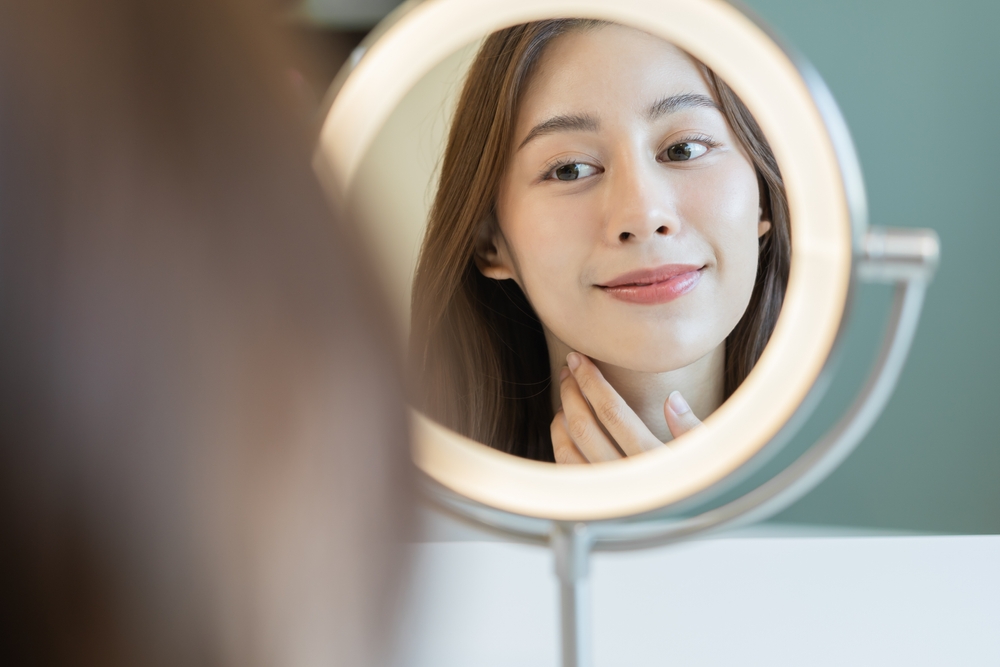Skin-care junkie? Always concerned about preserving as much youthfulness as possible?
Undoubtedly, you have just Googled the right thing!!
Retinoids! A perfect ingredient in your skincare regimen to battle wrinkles and other skin imperfections such as acne.
But!!!!
What are retinoids? How do they function? Is retinol good for your skin? Are there any side effects? And a list of not ending questions about this famous skincare ingredient goes on…..
No worries!!! I have got your back. I am going to provide you with a complete guide on retinoids and skin care.
Let’s dig in!
What are Retinoids?
A category of chemicals derived from vitamin A is known as retinoid. This suggests they’re structurally or functionally comparable to vitamin A.
Retinoids are of two types – topical and oral.
Topical retinoids are creams, gels, and liquids that can be applied directly to the skin. The topical retinoids available today are retinol, tretinoin, tazarotene, adapalene, bexarotene, and alitretinoin.
Oral retinoids, on the other hand, are tablets and capsules that can be taken orally.
You can acquire lesser variants of retinoids over-the-counter to help treat mild acne and age symptoms. Stronger versions require a doctor’s prescription and are used to treat more serious skin disorders like psoriasis.
Retinoids vs Retinol – Is there any Difference?
You must’ve heard or read retinoids and retinols as alternating terms and wonder if there is any difference or if both are just the same. Right?
Well, a slight difference exists. What is that? Retinoids and retinols are both members of the vitamin A family, but their potencies differ.
Retinols are a lesser type of retinoids, which is why they’re available over the counter. Retinoids, on the other hand, come in higher concentrations and are only available by prescription.
Now you must be thinking!! If retinols have lesser intensities, are they even effective?
To your answer, even if retinols are weaker, they still function. However, you must commit to 12 weeks of use to observe effects. Because of their decreased potency, they take longer to work.
What’s more? Over-the-counter retinols are frequently blended with moisturisers, making them less irritating. Moreover, because the formulation is weaker overall, it’s softer on the skin.
How Retinoids and Retinols Function?
Now moving forward exploring the most important question that just popped in your mind – How do retinols or retinoids and skin care combination work?
According to the top-reviewed cosmetologist in Rawalpindi Dr. Saiqa Kirmani, “Retinols and retinoids include the active ingredient retinoic acid, which is responsible for boosting cell turnover. Retinols go through a lot of modifications in their formulation to produce retinoic acid. On the other hand, retinoids are directly converted to retinoic acid, making them more effective and faster acting.“
The acid works by diffusing across the cell membrane and attaching to receptors on the nucleus of the cell. There it acts like a gene to increase cell development.
Retinoic acid also inhibits the formation of collagenase, a collagen-degrading enzyme. With age, collagen production decreases. It is vital to preserve it. As more collagen means plumper, voluminous skin with improved elasticity, which means less wrinkles and sagging.
How Do Retinoids Benefit Your Skin?
Now a million dollar question – What benefits do retinoids and skin care combinations provide? They are:
- Gives you a younger looking skin – the primary benefit
- Reduces inflammation
- Unclogs blocked pores
- Regulates the cellular growth on the surface of the skin
- Delays ageing process caused by UV exposure
- And YES, increases the procollagen (a precursor to collagen) production
What are Retinol Skin Care Uses?
Retinoids have been loaded as a cure-all for skin disorders. Although retinoids may not be the answer to every skin problem, they have been shown to help with a number of them.
Let’s see what are the uses of retinol skin care.

Retinol for Skin Acne
Acne! The major beauty concern of the young generation these days. The great news is!! A retinol skin care may assist you.
Yes, if you have moderate to severe acne that hasn’t responded to other therapies, retinoids can do that miracle for you. They can unclog pores when applied to the face, allowing other medicinal creams and gels to operate more effectively.
They also prevent dead cells from blocking pores, which helps to avoid acne breakouts. They may minimise the production of acne scars by cleaning acne and minimising breakouts.
How to apply? Once a day, 20 to 30 minutes after washing your face, apply a pea-sized dollop of retinoid cream on your skin.
Additional information: When you initially start using retinoids, you may experience redness, peeling, or worsen acne. You can reduce this by using the product every other day until your body adjusts, or by combining it with a moisturiser.
Also read to know about how to get rid of cystic acne.
Retinol for Wrinkles
Tretinoin was the first prescription retinoid to receive FDA approval for wrinkle treatment.
How does retinoids and skin care combination work for wrinkles?
- Stimulates the production of new collagen
- Stimulates new blood vessels in the skin, giving it a pink appearance Eliminates age spots
- Lowers actinic keratosis, which are precancerous skin lesions
- Aids to protect against the more significant effects of UV exposure.
NOTE: Over-the-counter retinoids may not work as well as prescription retinoids at reducing wrinkles, but they can help sun-damaged skin look better. Moreover, according to the best doctors from the dermatologists hospitals in Lahore, using them in conjunction with alpha-hydroxy acid-containing products may provide even more skin-smoothing benefits.
How to use it? Apply at least twice a week to your face, neck, chest, hands, and forearms.
Additional information: Improvements in wrinkles require 3 to 6 months of consistent application, with the optimum effects coming after 6 to 12 months.
Retinol for Warts
Retinoids are sometimes prescribed for warts too after other therapies have failed. The wart’s cell development is disrupted by retinoid cream.
How to apply? When administering retinoids to warts, follow your doctor’s instructions. Warts may take several months to disappear after applying creams.
Additional information: Flat warts on the back of your hands may respond best to retinoids.
You can also learn about home remedies for warts.
What are the Side Effects Associated with Retinoids Use?
Are there any side effects of retinol skin care? Well, while retinoids can help cure certain problems, they should be used with caution because they can irritate the skin.
The following are possible outcomes of irritation:
- Redness of skin
- Itching
- Excessive dryness of skin
- Skin scaling
The most common cause of skin irritation from topical retinoids is long-term use of high doses. Therefore, before using any retinol products, you should consult a dermatologist. You can make an appointment with the best dermatologists near you via Healthwire.pk.
How to Minimise the Risks?
You can simply the risks associated with retinol skin care by following below mentioned guidelines:
- Stay away from the sun. If you really must be outside, do it between the hours of 10 a.m. and 2 p.m. You can learn about tips to protect skin in summer.
- Wear sunscreen with a sun protection factor (SPF) of 30 or greater.
- Never take more of a product or use it more often than your doctor or the package label recommends.
- Along with topical retinoids, use a moisturiser.
CAUTION: DON’T use retinoids, if you’re pregnant or planning to become pregnant.
Some FAQs About Retinoids and Retinols
Answers to frequently asked questions about retinol and retinoids are provided below.
Is Retinol Considered a Retinoid?
Retinol is a retinoid, so yes. As mentioned above, retinols are a lesser variant of retinoids and are available OTC.
Is Retinoid Better than Retinol?
It all depends on your requirements! Retinoids triumph in terms of strength. They’re more powerful than retinols.
When to Put Moisturiser With Retinol? On Over or Before?
You can put moisturiser on over retinol. But there is no need as most retinol products include a moisturiser.
However, you can use a moisturiser before applying retinol to your skin. This will reduce irritation while not interfering with retinol absorption.
